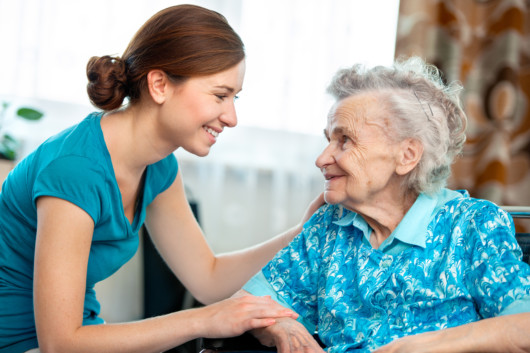We often feel a certain amount of responsibility for the interests of older relatives, especially aging parents. These are people who raised us and cared for us for years, and we want to show them gratitude by supporting them as they get older. But caring for the health of an elderly individual looks a lot different than caring for the health of a young adult or child.
Aging bodies have particular needs and may face more significant health risks than younger populations. In many cases, your aging family members may not be sure what to do to invest in their health. This is where you can step in and play a crucial role in improving their quality of life during their golden years.
There are many ways to support the health of your older relatives, so let’s take a look at a few that you could manage.
Encourage Low-Impact Exercises
Unfortunately, the older you get, the more fragile your body becomes. It often does not matter how healthy an individual is as they grew up. When they start to age, their bones, muscles, tendons, and other systems will weaken. For this reason, they cannot continue to participate in the same activities that they used to when they were younger. The stresses that their body could handle then would now put them at risk of serious damage. Instead, you can encourage your family members to engage in low-impact exercises that allow them to pursue fitness safely. Some examples include pilates, yoga, and water aerobics. Workouts to steer them away from include crunches, bench-pressing, and rock climbing.
Get Tested If They’ve Been Exposed to Harmful Chemicals
Significant diseases can be a detriment to health, both physically and mentally. While your family member was growing up, it is possible that they were exposed to harmful chemicals at some point in their life. If they ever lived or worked at Camp LeJeune, for example, they could be at risk of certain cancers due to decades-long water contamination. Getting tested for conditions like multiple myeloma can diagnose the disease quickly and set up a more proactive treatment plan. If this scenario has played out, you can file a multiple myeloma lawsuit to protect their financial interests as well. Know their health history, see if they should get tested for any type of exposure, and protect their health and financial interests.
Visit Often
Mental health is important for everyone, but elderly individuals face unique circumstances in this area. The older they get, the more likely they are to have lost friends and family members that have been around for a long time. They may also be unable to participate in society in the way that they did in the past. These two factors combined can lead to severe loneliness, which is why so many senior citizens experience depression. You can help negate these effects with your presence. Being around those that they love is critical for the mental health of older individuals, so if you can visit more often, it will do wonders for their wellness.
Help Them Find Hobbies
Keeping the mind engaged is another activity that can boost mental health for the elderly. Hobbies are a great way to accomplish this. Encourage your loved ones to either find new activities that they can enjoy or stay engaged with old ones. If they can engage their mind and work with their hands at the same time, all the better. Ask them what their interests are if you don’t already know them, and try to choose an activity that will boost their mental health. Some ideas include woodworking, knitting, puzzles, collecting antiques, gardening, and painting.
Search for Community Engagement Opportunites
Socialization is extremely important for senior citizens. Caring for these older family members may require you to help them find ways to stay engaged with the community. You could look to helpful resources like senior centers for local events and groups. Gyms often have classes for activities like water aerobics that would allow participants to meet other people with similar interests. Maybe there are volunteer opportunities in town that would allow your loved one to be a part of a mission that they care about while they socialize with others. Help your family member find ways to stay engaged to support their mental and social health.
Don’t Make Decisions For Them
One mistake that many younger relatives make with their aging family members is making decisions for them. Though in some cases you may need to be more proactive with taking action, it is better to let them have the final say. You can start the conversation about these behaviors and why they might be good for the individual, but then let the discussion follow their direction from there. Your role is to be encouraging and supportive, not direct them to make a decision that you think is best for them.
